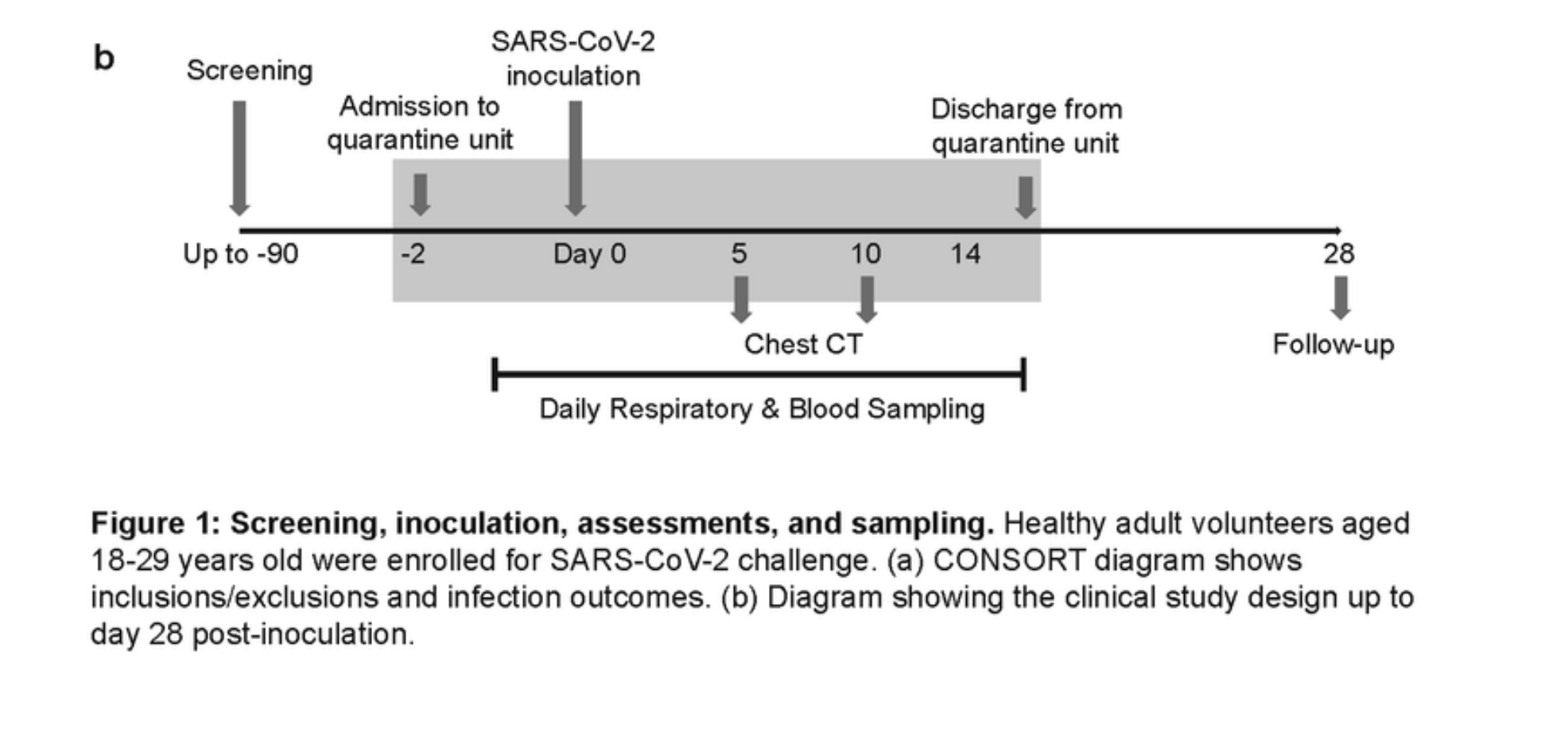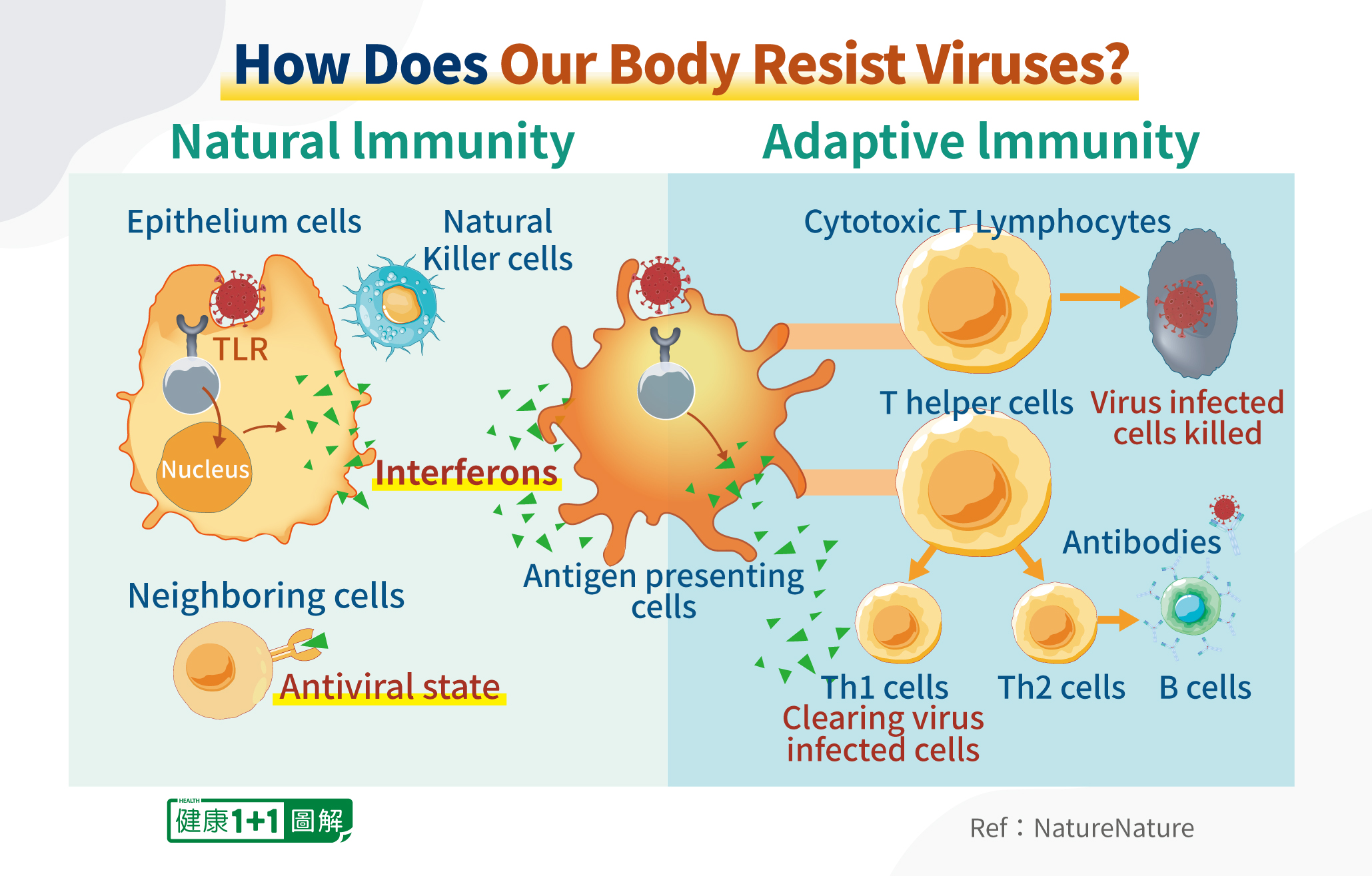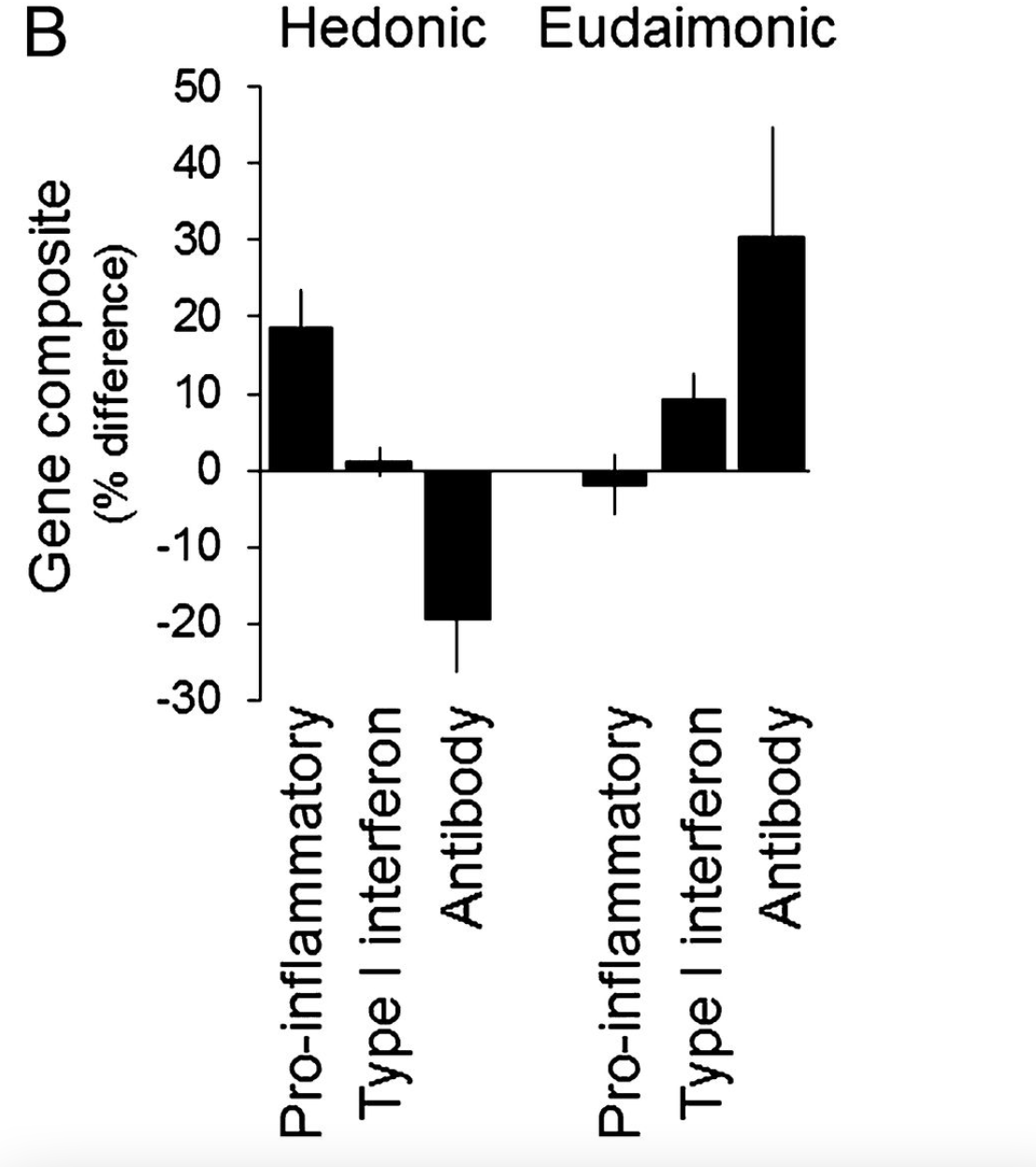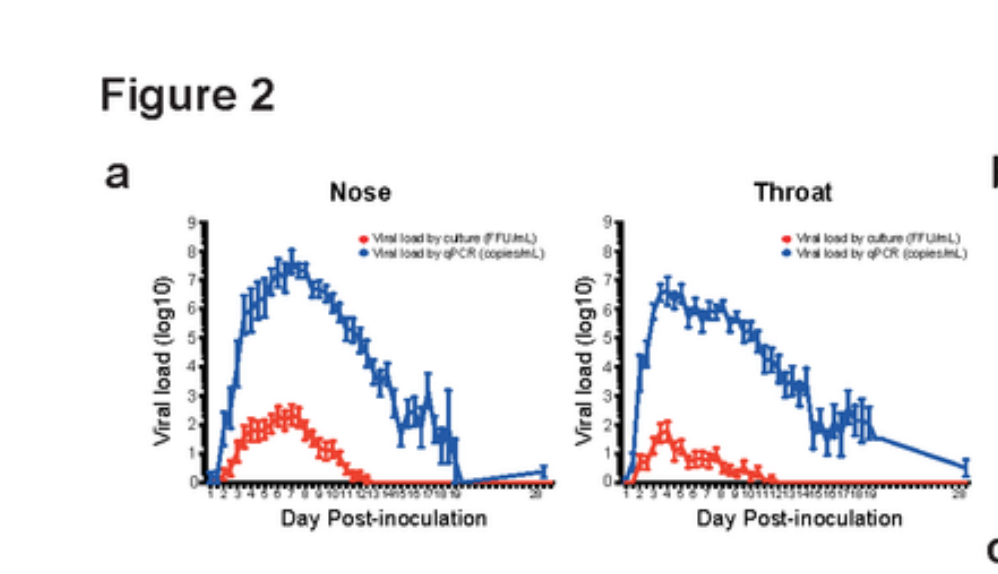
Recently an unprecedented study was conducted in the UK; a Covid-19 “Human Challenge Trial.” In it, 36 unvaccinated young adults were recruited to be injected with the coronavirus SARS-CoV-2 through the nose.
While the ethics of this study are undoubtedly questionable, the results were even more surprising. None of these people got seriously sick, and, more importantly, only half of these people exposed to the virus were infected.
The study raised an important question: Why didn’t everyone get sick? Even though the virus was injected directly into their noses, some weren’t infected.
For answers, we turned to Dr. Yuhong Dong, an expert in infectious diseases and antiviral drug development.
“We may think it’s incredible, but in the real world, we’re often exposed to an environment with the same virus concentration where some people get infected and some don’t,” Dr. Dong said. “What’s the reason? The study was designed to answer the question of why some people are resistant to viral infection.”
“People are probably just as curious as to how the tests were done. Everyone must be very concerned about the safety of the subjects upon hearing of this,” she said.
Dr. Dong notes that in the UK study, participants were infected with a strain that was not Omicron or as harsh as Delta. The study used an earlier pre-Alpha strain, which still had considerable pathogenicity.
So only a very healthy group of people, aged 18–29 years old, were considered as eligible subjects. And the study was designed very rigorously to ensure their safety.
The Infection Period

After 14 days of inoculating SARS-CoV-2 into the nose, the results can be put into three categories:
The first category were the 17 people who had no infection at all. There were no symptoms, no virus detected in the throat or the nose, and no antibodies in the blood. “The excellent natural immunity of these people won the battle against the virus without even breaking a sweat,” Dr. Dong said.
The second category were the asymptomatic patients—no symptoms, no virus was detected in the throat, but there were antibodies in the bloodstream—this means that asymptomatic immune reactions have happened in these people. Their immunity can still be considered to be quite good.
The third category were the 18 subjects who were symptomatic. The virus as well as antibodies were present in their bloodstream. The levels of inflammatory proteins in their bloodstream also increased. In the end, the infection was eradicated at the cost of countless immune cells like macrophages. Their natural immunity is rather weak when compared with the two previous categories, Dr. Dong explained, so their adaptive immunity (like a team of Navy SEALS) had to intervene, which resulted in antibodies.
What Was Different About Those Who Weren’t Infected?
The entire group of 36 participants was made up of healthy young adults, so it wasn’t as if those infected had pre-existing conditions. Then, what was different about the 17 who weren’t infected?
“We have to look at how the human body fights viruses,” Dr. Dong said.
“The immune system is like a well-established, compartmentalized military force, with each division performing their own duties and cooperating in combat. It is divided into the innate immune system and acquired immune system. The innate immune system responds quickly and protects us no matter what is attacking the body.”
“This map basically shows the key cells in the immune system, including mucosal epithelial cells, phagocytes, macrophages, T cells, B cells, Natural killers, etc..”

In people who are not infected, high levels of protective antibodies are not detected in the blood, indicating that the virus has not really entered the blood.
“In the mucosal epithelium stage, most of them are likely to be blocked. This is the human body’s first resistance against incoming viruses. For those with multiple immune barriers, when the specific immune system is online, it is often so because the virus has broken through the mucosal immunity and activated the acquired immunity, like the third group, indicating that the mucosal immunity is relatively weak and is not enough to resist the strength of the virus.
Resisting the Virus: Antiviral State and Interferon Activation
“How does the immune system help swing the fight around? A very important factor in winning is the state of the immune system before the battle, where the body is deploying its troops, is critical. Is the human immune system in a good state?
“The role of the interferon is very important. It is like a marker that adjusts the human body to a state where viruses can hardly replicate,” Dr. Dong said.
“When something like a FBI facial recognition system is functioning and detecting viral particles in the cells, multiple intracellular mechanisms will be activated to increase the large production of interferons by those infected cells. Interferons are the natural enemy of viruses. Why? It interferes with virus replication at every step of its life cycle, e.g. prohibiting DNA transcription, degrading mRNA, inhibiting translation from mRNA to protein and viral packaging.”
The first batch of infected cells will release interferons to neighboring cells, helping them become resistant to viral invasion.
“The human body can function like a switch, turning interferon production on and off. If it’s on, then interferon levels are healthy and the body is strong against viruses. How do we ensure our front line epithelium cells have a healthy level of interferons? During the course of this pandemic, there has been a lot of discussion of the role of B cells, antibodies, and now more recently, T cells. But why haven’t we talked about interferons?
“People pay more attention to the part of acquired immunity, vaccines, monoclonal antibodies and the like. Vital components of the body’s natural immune system are often overlooked. However, this part of the natural immune system remains to be an irreplaceable component of our immune system.
If the adaptive immunity (T cells, B cells) were already activated, it means that the viruses have already broken through the first line of defense in the superficial mucosal layer to the deeper blood or tissue layer. This means that we are already infected by the virus, similar to those 18 subjects who were infected by SARS-CoV-2 .
That is the real reason why current COVID-19 intramuscular vaccines can’t protect us from infection, as the antibodies induced by vaccines are working in the background, but not at the front line.
Think about two countries: in the first country your regular men in blue (or natural immunity cells) are able to keep the whole country safe. In the second country you see the military (adaptive immunity cells) patrolling the streets all day. Which country seems to be safer? Obviously, the first one.
“Therefore, the key is to be mentally prepared for an incoming infection by taking care of the body during times of ‘peace’ and to not fight unprepared battles. If you go to war when the virus has already arrived, and think about how to prevent the virus from coming, you’re already a step too late. Early preventive efforts long prevail directly dealing with the virus.”
Immunity and Inflammation
Then, under what circumstances would someone lack antiviral immunity?
“A large number of scientific studies have also found that people who suffer from chronic diseases and chronic inflammation have a higher risk of being infected with viruses, or developing severe symptoms. Chronic inflammation itself is an abnormal state of the body, because the body is “in” “flame,” or the body is on fire—a state of war.
Dr. Dong explained that severe COVID-19 patients often have cytokine storms, which is caused by excessive secretion of inflammatory cytokines. This situation is like adding fuel to the fire.
“In order to fight the virus, we must first put out the fire, that of our own body’s inflammation first. If your own body is already “on fire,” and you have an incoming virus, then you’re going to overload your body. It can’t handle something that puts this much strain on it, and will make any infection much more severe. As a result, a lot of your own tissues and cells will be damaged, perhaps beyond repair.
“As mentioned earlier, if people are healthy and there are plenty of interferons, our switch is “on” and antiviral; if there is chronic inflammation inside the body and we don’t have a lot of interferons, then our switch is “off” and we’d be easily infected with.
The ‘Antiviral State’
The most important thing is how to help people enter an antiviral state, where the body is ready for any incoming infections.
Various factors involving people’s daily life, sleep schedules, diet (alcohol consumption), stress level, etc. all contribute to this.
There are over a dozen lifestyle factors, Dr. Dong said, but many people watch out for a few.
For example, when it comes to bolstering the immune system, vitamin supplements, and looking at nutrition is easy for everyone to understand, because the effects can be seen through a microscope.
But when it comes to regulating emotions, relieving stress, and changing what we’re conscious about, people feel it is too out of touch to be relevant.
However, scientists’ research has proved that our thoughts and mindset can affect how well our immune cells function.
For example, as mentioned in many previous interviews with Dr. Dong, people with two different views of happiness—hedonic and altruistic—express different levels of interferons by our immune cells. Therefore, although our mindset is intangible, it still objectively exists and can even affect the state of our immune cells.

“The mind cannot be seen under the microscope, but the microscope is just a tool we use. Tools are man-made; today with a microscope, you can see molecules, and tomorrow it may be an atomic microscope, or even a super microscope, and you can see smaller things.
“Therefore, the fundamental reason why these people are not infected with the coronavirus is that at the macroscopic level, the body’s immune system—spleen, bone marrow, lymph nodes and other organs or tissues—function normally.
“At the molecular level, it’s about immune cells, related molecules (interferons, etc) and other substances. But at a more microscopic level, there may be more manifestations, which we cannot “see” yet.
“Although invisible, these manifestations could exist, and can very much affect the tangible things.
“Therefore, to really study the science of our human body, we can’t just stick to the molecular or cellular level, but go a little deeper. Think mindset, spirit and so on. In the UK Human Challenge Trial, the deeper reason why some people weren’t infected with the virus may also be related to substances at a more microscopic level. It would be great if the study designers collected information about the subjects’ vitamin D levels, alcohol consumption, sleeping schedule, stress level, as well as their views on well-being, etc.”
Also, we have to remember that these Covid vaccines do not prevent viral infection. “It’s an inherent defect, a congenital defect, if you will, of the design concept of these vaccines,” Dr. Dong said. “The role of the vaccine is very similar to B cells, which are producing antibodies, and it is not on the front line of infection, so it is not surprising that it cannot prevent infection.
What the Vaccine Is Missing
Specific immunity depends on the viral gene sequence, so vaccines are locked to a specific generation of a virus. Because of this, newer covid generations such as Omicron can “evade” the vaccine. The vaccine also has an “expiration date.” This is because the vaccine is a foreign substance, and eventually gets metabolized in the body. The antibodies induced by the vaccine are metabolized as well. The vaccine alone is not very reliable.
In the end, you should keep in mind that the current COVID vaccine doesn’t prevent an infection in the first place. This is true for any virus and any variant.
Therefore, if we want to find something that can overcome these defects and really prevent infection, we need something else..
So what “shot” should we get? Our God-given natural immunity is fighting against all variants of any viruses or bacteria at the front line of the battlefield all the time. Isn’t this a great “vaccine”? It’s a pity that not everyone is aware of what it’s capable of, or understands how to maintain it, but totally gets that you should get premium gas every once in a while.
However, the antibodies induced by Covid vaccines could help an infected person neutralize invading viruses in the bloodstream, which could reduce the disease severity for those people with weakened natural immunity. This is the reason why Covid vaccines could protect in cases of symptomatic Covid infections, reducing severe disease or deaths. So vaccinations in general could in that way help reduce the burden of medical resources and bring benefits for human society.
Signs of the Body
In these 18 subjects, the virus first appeared in the throat in just under two days. It is interesting to note that the virus was only detected in the nose 3 days after it was first injected. Dr. Dong explained that a trait of the virus, its ability to look for a habitable environment first before multiplying, was responsible for this. The throat, having a rich blood system, was a great match for the virus. Virus levels tended to peak in about five days.

“But on the flip side, the throat, which seemed to be a suitable environment for the virus to multiply, is also better equipped with a defense system,” Dr. Dong said. “The throat is located behind the nasal cavity. The mucosal immune system, which also happens to be there, is relatively strong. For example, we have two tonsils in the back of the throat. The two tonsils are two strategically important goalkeepers in our body that fight against all sorts of pathogens as the very first line of defense.”
“Even in healthy people, the lymphocytes in the throat remain in a state of readiness. Once bacteria, viruses, and other pathogens invade, they will immediately retaliate. In the early stages of a common cold, symptoms such as a sore throat and phlegm will appear, which is the result of the ability of mucosal immunity to eliminate the virus or bacteria. As long as one’s immunity is strong enough, a common cold is not a big deal.
“However, if you suffer from a cold while having a relatively poor immune system, which can be caused by lack of sleep, long-term fatigue, stress, etc. even the time it takes to recover from a common cold can take several weeks to a few months. This is a clear sign for us to change our lifestyle and to treat our immune system a little better.”
Therefore, how much a cold affects us is actually more of a sign from our body, an indication of how well our immune system is doing. We should pay more attention to what our body is telling us.
References:
https://assets.researchsquare.com/files/rs-1121993/v1/2f0e9953-432e-4601-b98e-4ae5c08e025d.pdf?c=1644278080%EF%BC%9B2
Nutrition and immunity: lessons for COVID-19 | European Journal of Clinical Nutrition (nature.com)
Toll-like Receptors and Type I Interferons* – Journal of Biological Chemistry (jbc.org)
A functional genomic perspective on human well-being | PNAS
Chronic inflammation in the etiology of disease across the life span | Nature Medicine